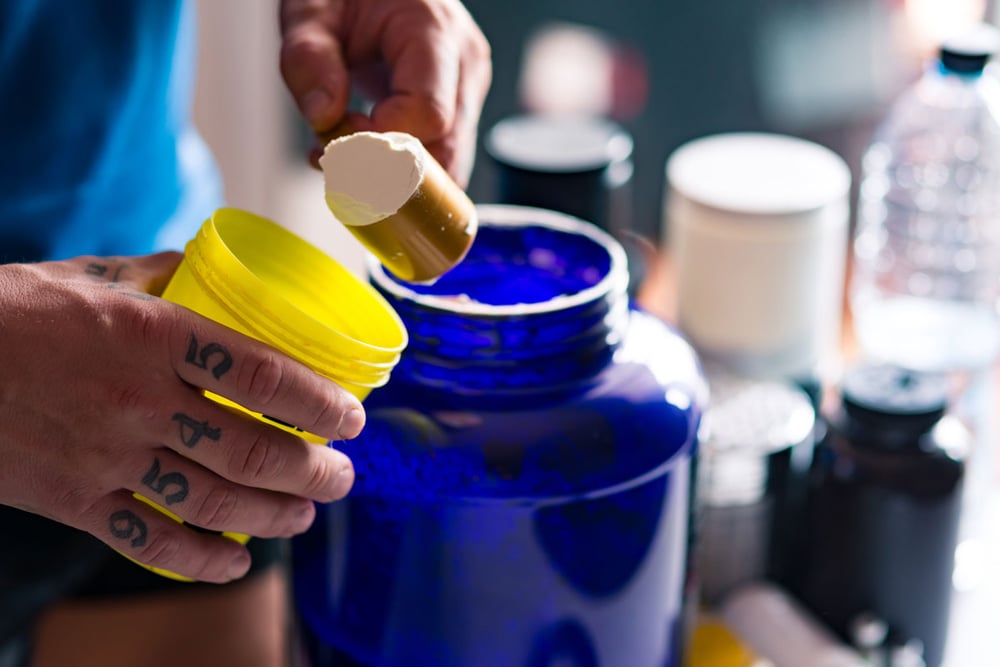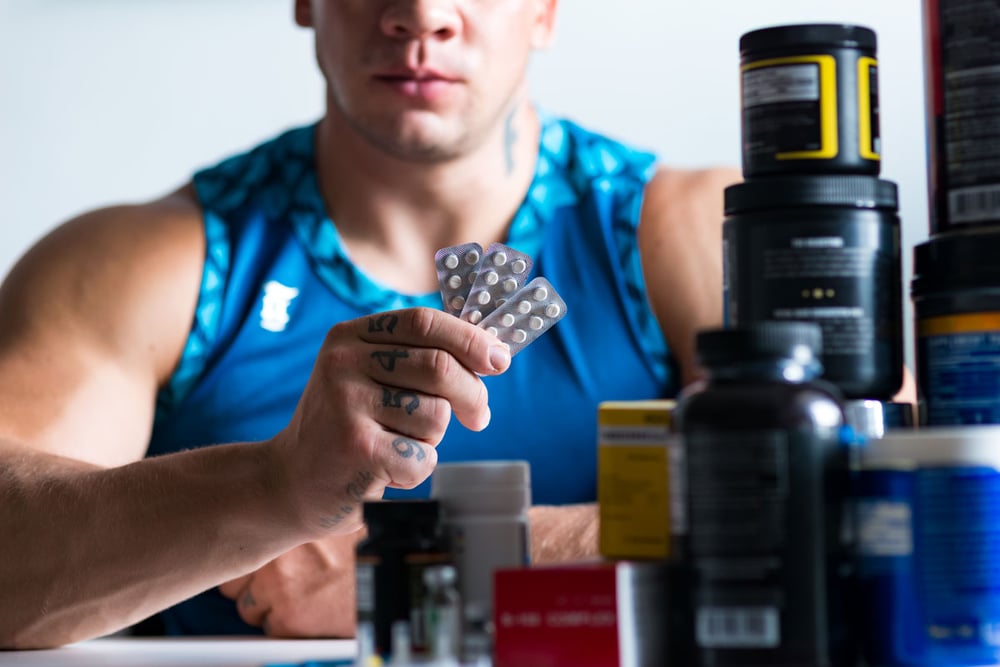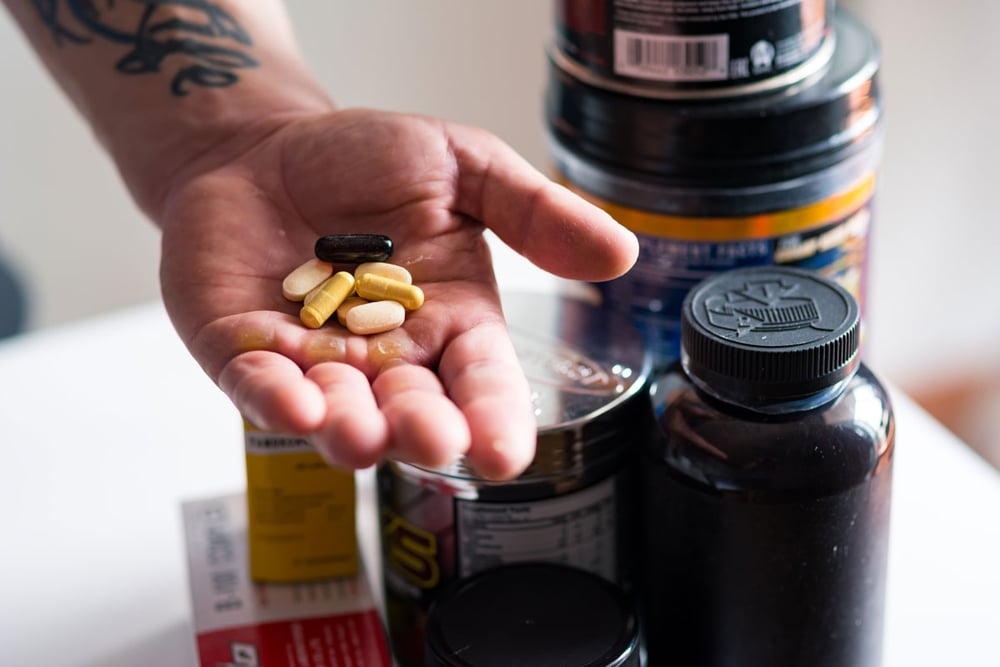
Issue 204
May 2024
If you’re beautifully naïve, supplement shopping is a whizz. It can be a frustrating business if you’re a little more science orientated. This is what you need to know about sports supplement labeling.
To the uninitiated, supplements are the superheroes fueling MMA’s best performance. They swoop in to save you from the ills of any villainous elements in your lifestyle and diet. If you’re short on protein, there’s a tub for that. If you lack micronutrients, including ones you didn’t know existed, there’s a jar of capsules to heal that ailment. They’re no longer designed for the pro fighters because the industry couldn’t survive on the elites – there simply aren’t enough of them. Supplement companies know this and gear their products towards the average person who might want to train a little longer, improve their performance, feel more energized, and become healthier. A month’s worth of most nutritional products will set you back less than a restaurant meal for two and can create noticeable results. Admittedly, there is a lot of confusing information to digest on the subject, so we’ve created this crash course on label reading so that you can make informed decisions with your credit card.

BACKED BY SCIENCE
Be cautious about over-inflated supplement claims because you should always do your research. If a supplement’s claim is backed by just one study and it’s not listed in a scientific journal, then you may want to steer clear – it’s possible the seller paid for that study. This fact is particularly relevant to really obscure products. On the one hand, protein is a well-established macronutrient that you need, but on the other hand, an herbal formulation grown on a remote Tibetan mountainside that you can’t pronounce should be treated with caution. Do your own investigation to be sure you’re getting what the label promises.
COMPLETLEY CLEAN
Clean eating is an MMA diet fad that relentlessly flooded your ‘gram with food porn 10 years ago, and supplement manufacturers have jumped on this buzzword. A supplement labeled clean is not necessarily natural or free from additives such as artificial flavors, colors, fillers, and stimulants. The FDA doesn't have a legal definition of the “clean label,” which means the term is open to profound interpretation. It could be construed as simple, transparent, organic, or sustainable – nobody knows, but it does sound cool and on-trend. Take home message? Examine the ingredient list, and if there is stuff in there that you feel shouldn’t be, look elsewhere because the only thing that’s truly clean is food that was once alive.

MEAL REPLACEMENT
You should always use supplements for convenience – never dependence. Supplements won’t make you healthy if your diet is poor, but having a protein shake to hand when you’re out of the house is a healthier choice over a bag of candy. Supplements aren’t just for fitness and enhance your overall wellness; you have to choose the right ones and team them up with a smart dietary strategy.
WILL MAKE YOU [INSERT WILD CLAIM HERE]
Benefits are often proportionate to the number of ingredients rammed into one serving. Thinking that overloading your system with multiple ingredients is a way to get extra benefits can be a fool’s errand. More is not always better, especially if you don’t know your tolerance for each ingredient, so start slow with what you know so it doesn’t give you any nasty side effects. And always stick to the recommended doses. Doubling the dose won’t make you run twice as fast.
BEAST MODE ENERGY
Do you want to be so razzed up that you can’t contain yourself against your sparring partner? Caffeine is great, but when you drink unholy quantities thereof, it can be borderline dangerous. A paper by the American Heart Foundation discovered that drinking high-dose caffeine drinks can raise blood pressure and found that the caffeine dosage in 1-2 cups of coffee (200mg) is the safest amount to drink. So, if a supplement offers you 10 coffees worth, watch out because no fighter needs that much oomph.
GIANT SERVES
More is not always better because if you’re supplement shopping by weight, a giant serving at a low price might cost you your health in the long run. Bulky items at low prices often have cheap fillers made from covert ingredients such as maltodextrin (code for sugar), cellulose, or titanium dioxide. If these features are early on (items 2-4) in a product’s ingredient list, then most of the product is fluff. It’s not that they’re necessarily harmful to your health, but you don’t need them either.
THE LATEST BUZZ INGREDIENT
Whether it’s a tea Beyoncé drinks or a mystical on-trend ingredient, you should know that all that is new is not amazingly effective. Compounds take time to be proven effective. An MMA influencer telling you that a new wonder fat burner is what you need to be at your fighting weight is probably hawking a product that contains the said ingredient. Instead, wait for the hype to settle before you part with your money.
STUDY
https://www.sciencedaily.com/releases/2018/10/181001101932.htm
https://www.sciencedaily.com/releases/2018/08/180827134437.htm
CAFFEINE
https://www.sciencedaily.com/releases/2017/04/170426183025.htm
...









